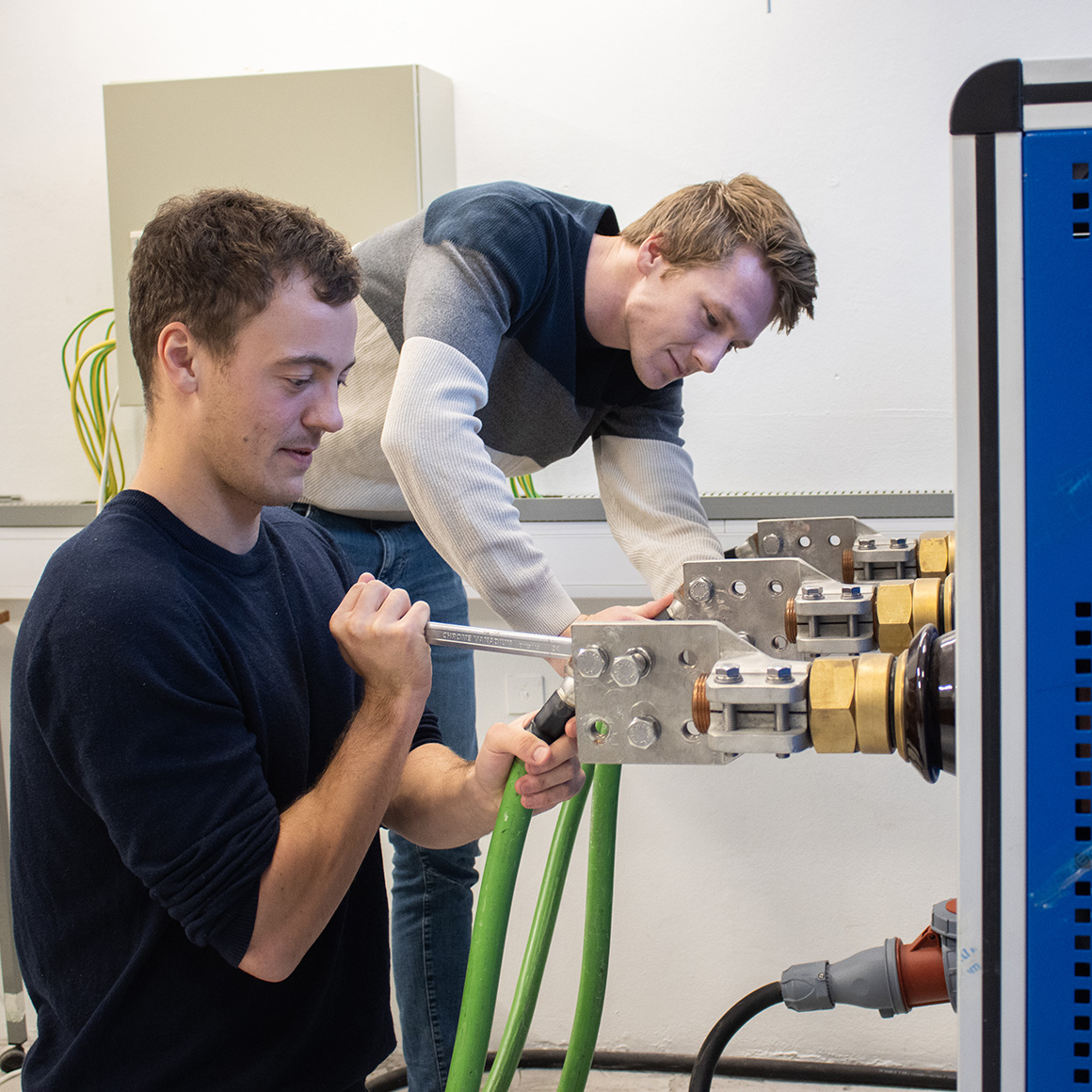
Engineering courses – Master level
At our campus in Porsgrunn we offer four professional directions within the field of engineering at master level.

At our campus in Porsgrunn we offer four professional directions within the field of engineering at master level.
How and where classes are offered.
Expected progress of study. Full time is programmes with full progress of study (60 ECTS credits per academic year, 30 ECTS credits per semester). Part time is programmes with less than full progress of study (less than 60 ECTS credits per academic year, or less than 30 ECTS credits per semester).
Campus Porsgrunn has a strong engineering environment within several fields. Our engineering programmes, both at bachelor and master level, are developed in collaboration with local industry and are designed to meet the need for future competence.
We have good laboratory facilities and a well established collaboration with industries that focus on research and development. We emphasize learning how to apply theoretical knowledge to solve practical tasks, and many of our courses include project work.
We work closely with the industry in our area and our student projects and master's theses often come directly from our partners.
The industry in Norway has a continuing need for new engineers with knowledge within all the professional directions offered at campus Porsgrunn.
Porsgrunn offers four professional directions within the field of engineering at master level.
The subjects in this exchange programme will provide a solid base on how electrical power systems are constructed and operated. The necessary design requirements for equipment and quality control (voltage quality) of the general energy supply are included in the studies.
Central topics of the programme deal with control technology to ensure safe operations of a power system and to deliver the required quality of power supply. The academic content is balanced to allow the candidates to work on both operating and rehabilitating/renewing existing systems, as well as developing Smart Grid and similar solutions so that business can run in a “socially responsible way”.
Courses within Energy and Environmental Technology will give you the opportunity to explore this field, ranging from planning and controlling industrial processes, to knowledge of how we can prevent environmental threats and explore environmentally friendly energy sources, both through the use of experimental equipment and via advanced modelling and simulation tools.
You have the opportunity to learn about:
You can get knowledge in monitoring, control and optimization of all types of technical and industrial systems based on cybernetic methods and computer engineering.
You have the opportunity to learn:
You can get insight into the design of process plants, knowledge about industrial flow processes, applied thermodynamics, process synthesis and separation technology.
If meeting the prerequisites in the courses at campus Porsgrunn, international students can combine courses within the professional directions listed in the study modell.
We offer an informal and student friendly environment. Our campuses are small with an open-door policy where our staff dedicates time and attention to each student. USN offers a safe living and study environment as well as a multicultural society where English is widely spoken. Our programmes are focused on practical study methods with a problem-based approach that should help students to prepare for real-life situations.
The graduate students will achieve a sound foundation for further doctoral degree studies (PhD) at USN or at other universities anywhere in the world.